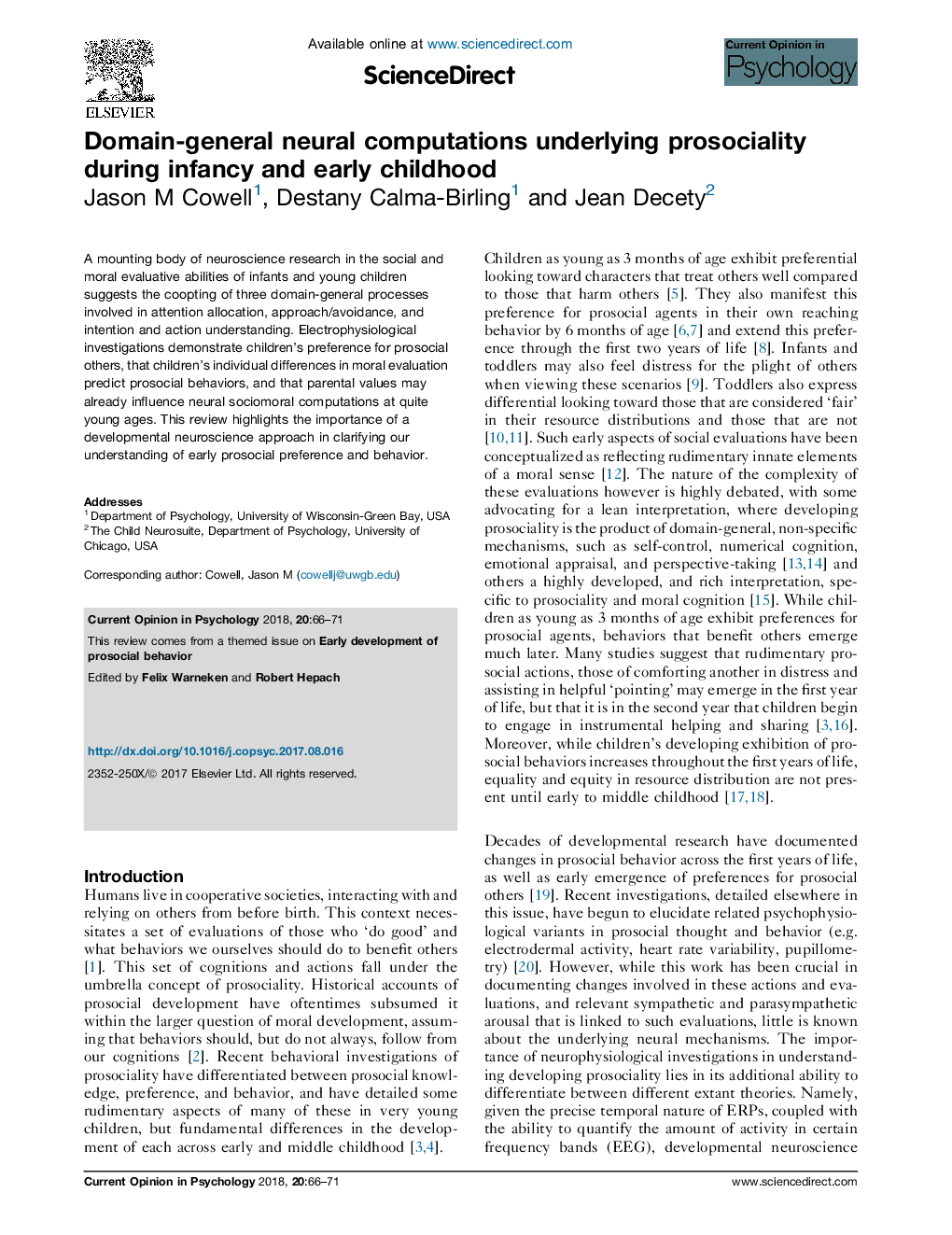| Article ID | Journal | Published Year | Pages | File Type |
|---|---|---|---|---|
| 5033390 | Current Opinion in Psychology | 2018 | 6 Pages |
â¢Early prosociality coopts the general systems of attention and emotion regulation.â¢Developmental neuroscience findings link prosocial cognition and action.â¢Parental moral dispositions predict children's neural prosocial computations.â¢Cross-cultural developmental social neuroscience is critical.
A mounting body of neuroscience research in the social and moral evaluative abilities of infants and young children suggests the coopting of three domain-general processes involved in attention allocation, approach/avoidance, and intention and action understanding. Electrophysiological investigations demonstrate children's preference for prosocial others, that children's individual differences in moral evaluation predict prosocial behaviors, and that parental values may already influence neural sociomoral computations at quite young ages. This review highlights the importance of a developmental neuroscience approach in clarifying our understanding of early prosocial preference and behavior.
